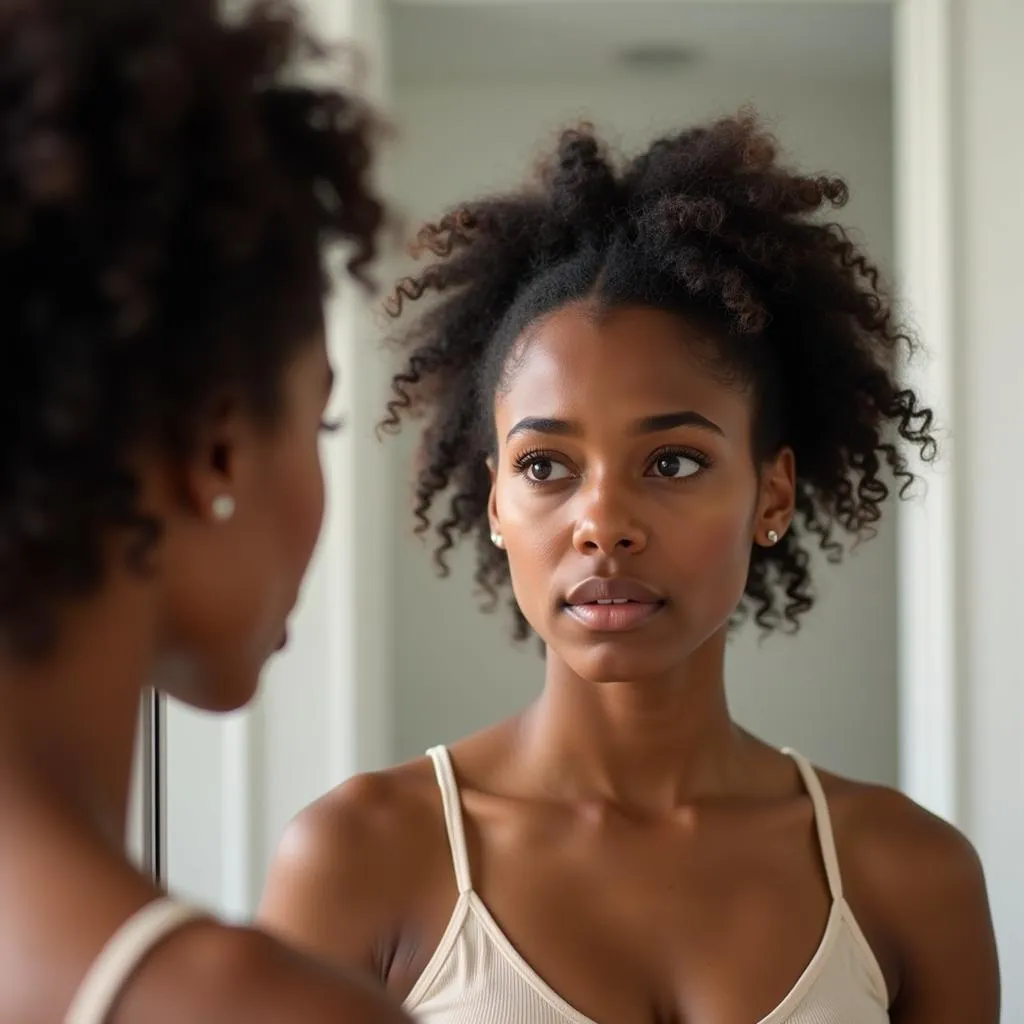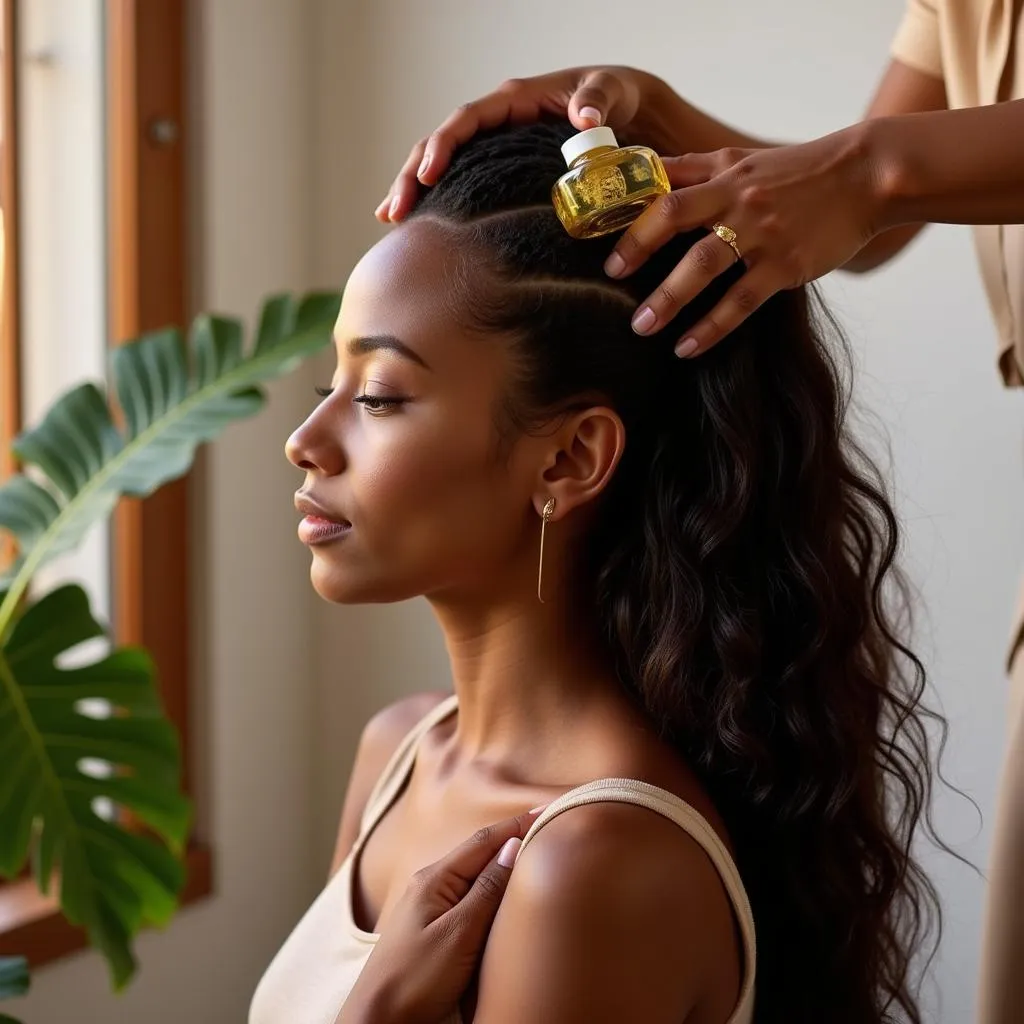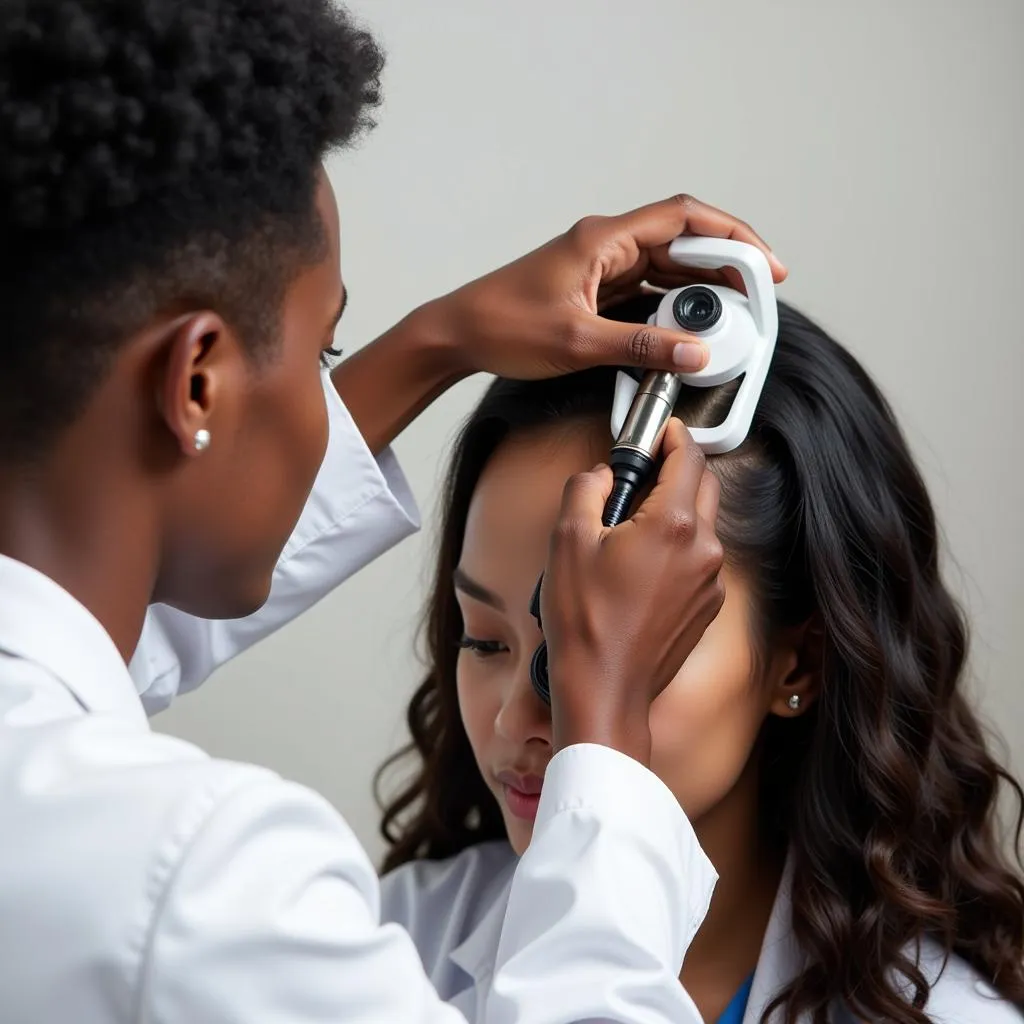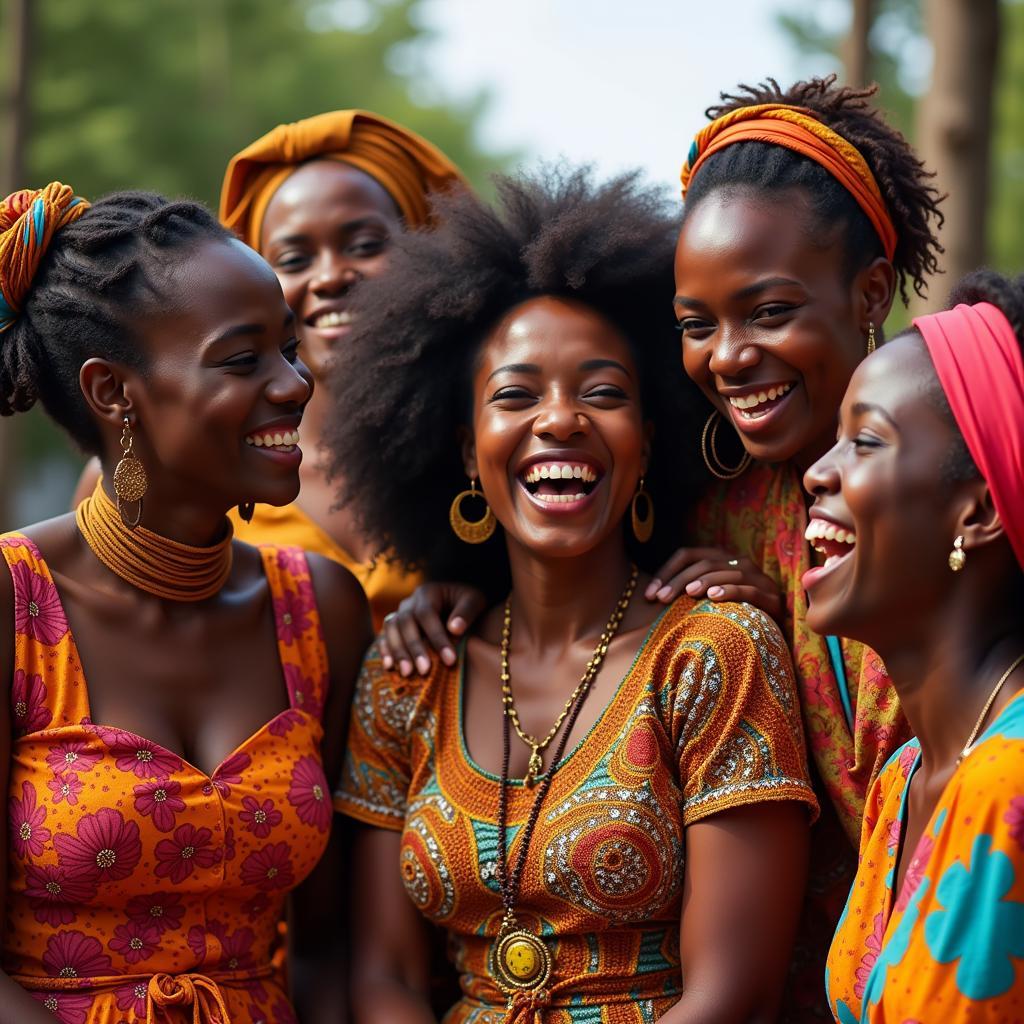African American Hair Loss Treatment: A Holistic Guide
Hair loss is a common concern that affects people of all ethnicities, including African Americans. While there are numerous factors that can contribute to hair loss, understanding the unique characteristics of African American hair and exploring targeted treatment options can be crucial in finding an effective solution.
 African American woman experiencing hair loss
African American woman experiencing hair loss
Understanding African American Hair
African American hair is known for its tight curls and coils, which contribute to its unique beauty and versatility. However, these same characteristics can also make it more prone to breakage, dryness, and ultimately, hair loss. The curlier the hair strand, the more fragile it is, making it susceptible to damage from styling, chemical treatments, and even everyday wear and tear.
Common Causes of Hair Loss in African Americans
Several factors can contribute to hair loss in African Americans, including:
- Traction alopecia: This is a common form of hair loss caused by prolonged tension on the hair follicles, often due to tight hairstyles like braids, weaves, and extensions.
- Central centrifugal cicatricial alopecia (CCCA): This type of scarring alopecia primarily affects women of African descent and causes hair loss on the crown of the head.
- Seborrheic dermatitis: This scalp condition, characterized by red, itchy patches and dandruff, can also lead to hair loss.
- Hormonal imbalances: Changes in hormone levels, such as those that occur during pregnancy or menopause, can trigger hair loss.
- Nutritional deficiencies: A lack of essential nutrients, such as iron and vitamin D, can also contribute to hair loss.
- Genetics: A family history of hair loss can increase your risk.
African American Hair Loss Treatment Options
Fortunately, there are a variety of treatment options available for hair loss in African Americans. These include:
1. Lifestyle Changes
Making simple changes to your hair care routine can make a significant difference:
- Avoid tight hairstyles: Opt for looser styles that don’t put excessive strain on your hair follicles.
- Be gentle with your hair: Avoid harsh brushing, combing, and heat styling.
- Moisturize regularly: African American hair is naturally dry, so it’s essential to keep it well-moisturized. Use deep conditioners and hair oils specifically formulated for your hair type.
- Eat a healthy diet: A balanced diet rich in protein, iron, and other essential nutrients can promote hair growth.
 African American woman applying hair oil
African American woman applying hair oil
2. Topical Treatments
- Minoxidil: This over-the-counter medication is applied topically to the scalp and is thought to stimulate hair growth.
- Hair growth serums: These products contain ingredients that aim to nourish the scalp and promote hair growth.
3. Medical Treatments
- Corticosteroids: Injections or topical creams can help reduce inflammation and promote hair growth.
- Hair transplantation: This surgical procedure involves transplanting hair follicles from one area of the scalp to the area of hair loss.
4. Embrace Protective Styles
Protective styles like braids, twists, and locs can be a great way to protect your hair from damage and promote growth. However, it’s essential to ensure that these styles are not too tight and that you give your hair breaks in between.
Seeking Professional Help
If you’re experiencing significant hair loss, it’s essential to consult with a dermatologist or trichologist specializing in African American hair. They can help determine the underlying cause of your hair loss and recommend the most effective treatment options for you.
 African American dermatologist examining patient's hair
African American dermatologist examining patient's hair
Conclusion
African American hair loss is a multi-faceted issue with a variety of potential causes and treatment options. By understanding the unique needs of your hair and seeking professional guidance when necessary, you can take proactive steps towards achieving healthy, vibrant hair. Remember that African American hair growth tips and using the right African American hair products for hair loss are essential for addressing this concern.
FAQs
1. How do I know if my hair loss is normal?
Some hair shedding is normal, but excessive shedding or noticeable thinning could indicate a problem.
2. Can stress cause hair loss?
Yes, stress can trigger hair loss. Managing stress through techniques like yoga and meditation can help.
3. What should I eat for healthy hair growth?
A balanced diet rich in protein, iron, vitamin D, and biotin is crucial for hair health.
4. Can I still get my hair relaxed if I’m experiencing hair loss?
It’s best to avoid chemical relaxers if you’re experiencing hair loss, as they can further damage your hair.
5. When should I see a doctor about my hair loss?
If you’re experiencing sudden or excessive hair loss, it’s best to see a doctor to rule out any underlying medical conditions.
6. Are there any natural remedies for African American hair loss?
Some natural remedies, like aloe vera and essential oils, may help promote hair growth, but it’s important to talk to your doctor before using them.
7. How long does it take for African American hair to grow back?
Hair growth rates vary, but on average, hair grows about half an inch per month.
Need More Help?
For more personalized advice and support on African American hair care, or to learn more about African American hair relaxer options, you can contact an African American dermatologist NJ.
If you need further assistance, please don’t hesitate to reach out to us. You can call us at +255768904061, email us at kaka.mag@gmail.com, or visit us at our office in Mbarali DC Mawindi, Kangaga, Tanzania. Our dedicated team is available 24/7 to assist you with all your hair care needs.

